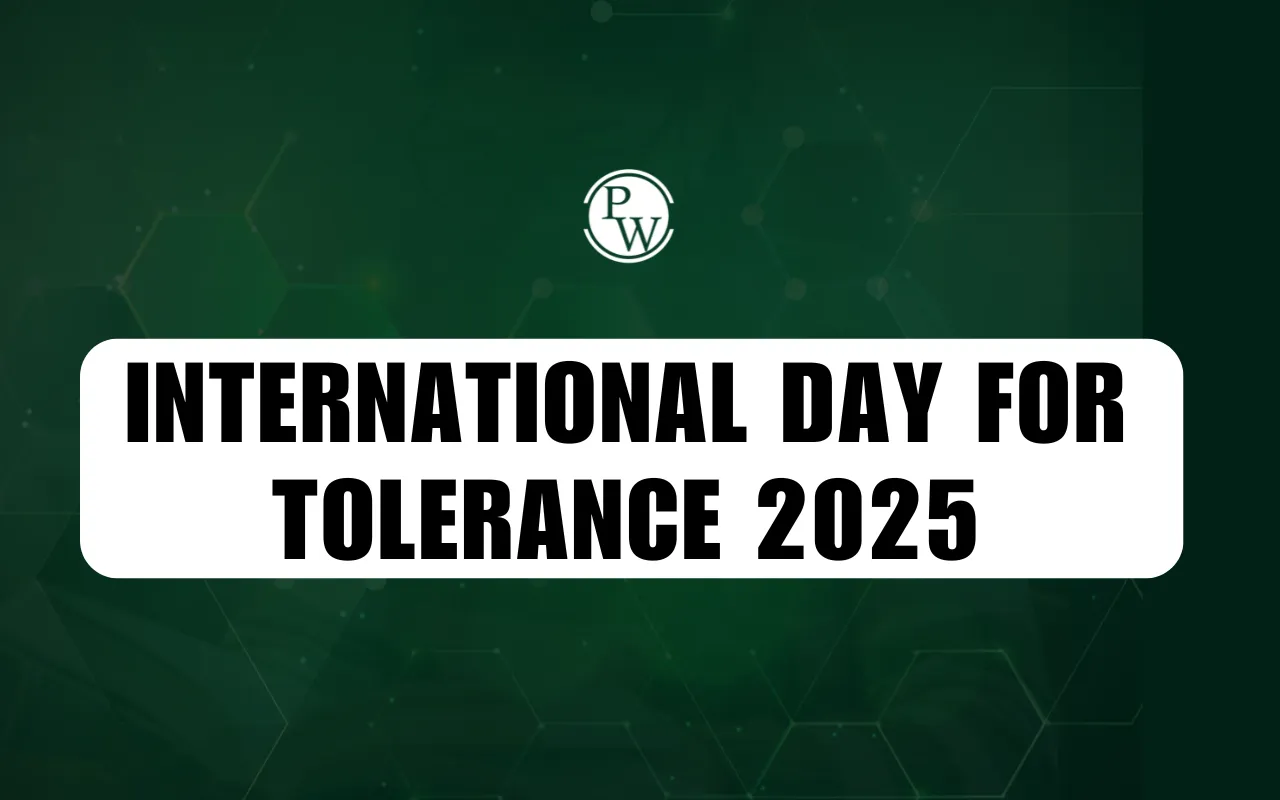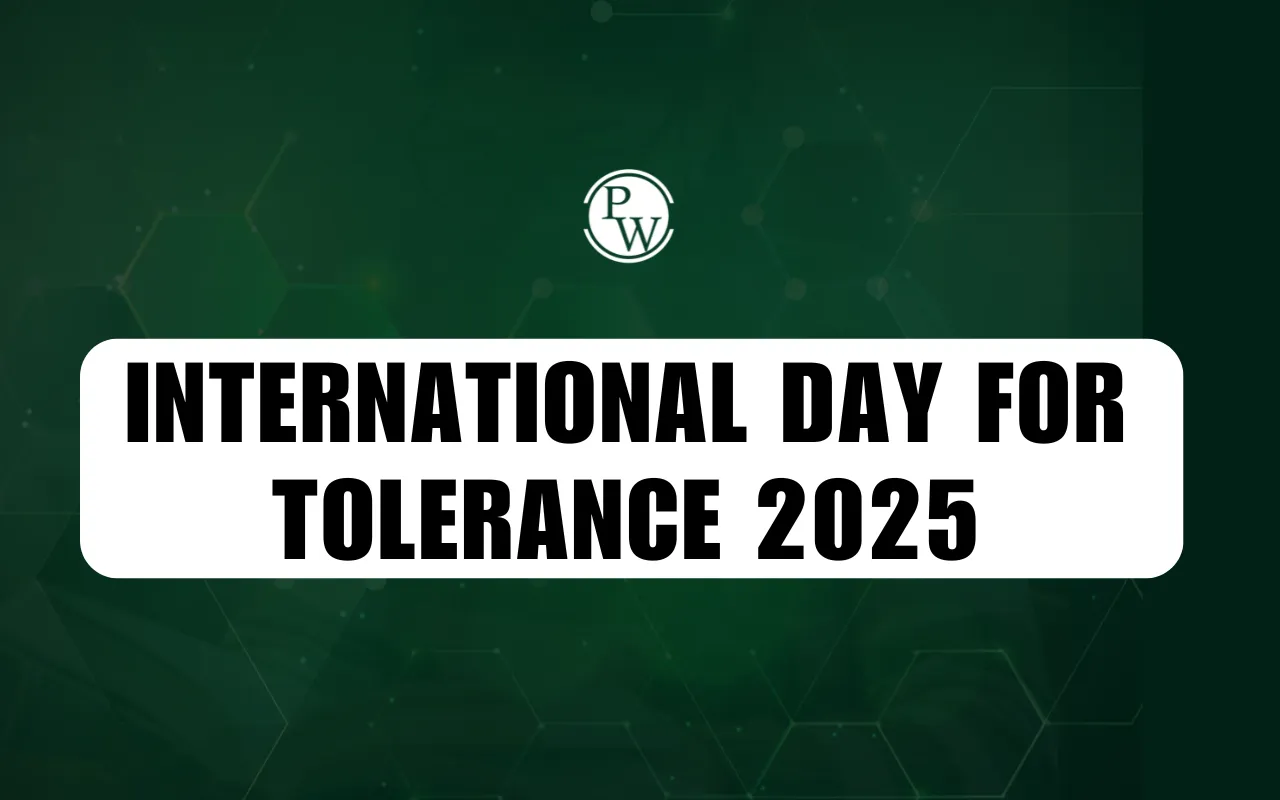

International Day for Tolerance 2025: In an increasingly interconnected yet polarized global landscape, the fundamental value of tolerance assumes paramount importance. Societies worldwide grapple with rising xenophobia, hate speech, and sectarian conflict, challenging the very notion of peaceful coexistence. Observing the International Day for Tolerance provides a crucial annual moment for global reflection. Will humanity choose the path of dialogue and mutual respect, or succumb to the divisive forces of fear and prejudice?
International Day for Tolerance 2025 Date
The International Day for Tolerance 2025 is officially observed on Sunday, November 16. This date marks the anniversary of the adoption of the Declaration of Principles on Tolerance by UNESCO Member States in 1995, a foundational document in international human rights law. The day unequivocally asserts that tolerance is neither indulgence nor indifference; rather, it is the active respect and appreciation for the rich diversity of global cultures, forms of expression, and ways of being human. It serves as a necessary global call to action, reminding States and individuals of their obligation to fight all forms of discrimination, ensuring the survival of mixed communities across the globe.
International Day for Tolerance 2025 Theme
While UNESCO has not yet formally announced a single definitive theme for the 2025 observance, the overarching focus remains on "Promoting Respect And Understanding Worldwide," particularly in the context of the State's 30th anniversary of the Declaration. The ongoing global challenges of mass forced displacement, the surge in online misinformation, and the persistence of violent extremism inform the core message. The emphasis for 2025 events will likely be on social inclusion, combating all forms of hate speech, and leveraging educational tools to foster empathy among youth. This year demands a renewed global commitment to human rights, pluralism, and the democratic principles that intolerance fundamentally undermines.
Mandate and Founding Pillars: The UNESCO Declaration
The observance's mandate originates from the UN General Assembly Resolution 51/95 of 1996, which invited Member States to mark November 16th with appropriate activities for educational establishments and the wider public. The core principles were established in the 1995 Declaration, which defines tolerance as a moral obligation rooted in the Universal Declaration of Human Rights. It outlines distinct levels of action to counter intolerance: requiring law to prohibit discrimination, demanding education to combat ignorance, necessitating access to information to encourage open discourse, fostering individual awareness to reject bigotry, and generating local solutions to protect vulnerable groups. This multi-pronged strategy underscores that tolerance is an active verb, not merely a passive state.
The UNESCO-Madanjeet Singh Prize: Honoring Global Peacemakers
A critical component of the International Day for Tolerance is the biennial presentation of the UNESCO-Madanjeet Singh Prize for the Promotion of Tolerance and Non-Violence. This significant award, established in 1995 to mark the 125th birth anniversary of Mahatma Gandhi, rewards individuals, institutions, and non-governmental organizations demonstrating exceptional leadership in promoting tolerance. The prize, worth US $100,000, is a powerful tool to elevate successful models of peace-building and non-violence onto the global stage. Since the prize is awarded every two years, the next official award ceremony is scheduled for November 16, 2026, making the current focus on nominations and past laureates for 2025 crucial for public awareness and inspiration.
Policy and Action for a Tolerant Future
Promoting tolerance necessitates concrete policies and sustained political will. States must invest in comprehensive educational reforms that incorporate global citizenship education and critical thinking to inoculate young minds against extremist ideologies and digital misinformation. Legislative action against hate crimes and hate speech, as advised by the UN Strategy and Plan of Action on Hate Speech, is essential for establishing non-negotiable legal boundaries. Furthermore, governmental initiatives must support and empower civil society organizations that actively work on interfaith dialogue, cultural exchange, and the integration of migrant and refugee populations. True tolerance is the practical application of human rights principles in a world characterized by difference; its cultivation is the responsibility of every citizen, not just governments.
